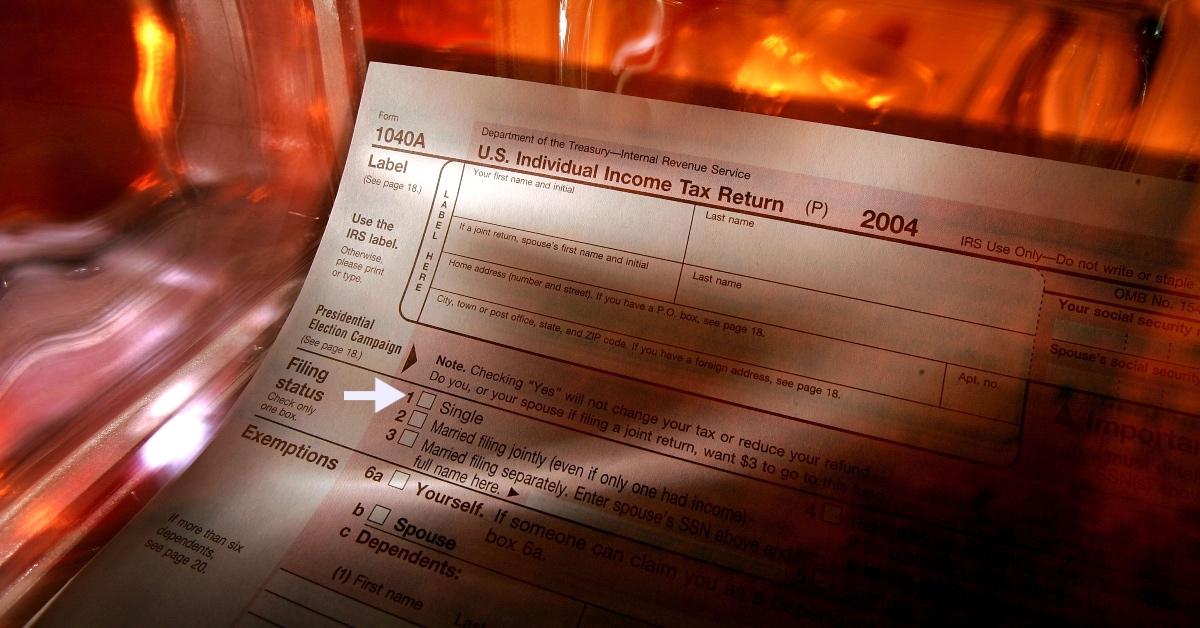What Will Happen if I File My Taxes as Single Even Though I’m Married?
If you file your taxes using the single status even though you're married, you could face civil and/or criminal repercussions. Here is what you need to know when filing taxes this year.
Jan. 7 2022, Published 4:55 p.m. ET

It's very important that you file your taxes using the correct status, whether it’s single, married, or head of household. This helps to ensure you’re able to take advantage of all the tax breaks that are available to you.
In addition, it keeps you in compliance with federal and state law.
If you’re married but are considering filing your taxes using the “single” status, here are a few reasons why you shouldn’t.
Here’s what could happen when you file your taxes using a status other than the one that applies

There are plenty of circumstances in which you might consider filing your taxes as single even though you’re married. Perhaps you and your spouse are separated and have been for some time. Or maybe your spouse is behind on filing their taxes and you don’t want their financial burdens to fall onto you.
Whatever the reason is, you need to file your taxes according to your marital status. If you’re married, you have the option of filing as “married” or “married filing separately.”
If you don’t want your financial obligations to get mixed up with your spouse, you might consider filing “married filing separately.”
However, if you’re legally divorced, which means the court issued a divorce decree that formally ended your marriage, then you can then file as single. If you are married but got a legal separation, you’re also given the option to select “legally separated” as your filing status. This may or may not result in you being identified as the head of household.
Despite knowing this, if you were to file your taxes using the single status while you are married, below are a few potential outcomes.
1. You’ll lose out on certain tax credits or deductions you otherwise would be entitled to if you filed as “married.”
According to TurboTax, a company that offers tax preparation services, your tax bracket could be lower if you file married filing jointly. Additionally, if your spouse suffered business losses, it could open you up to some additional deductions. Also, when you file married filing jointly, you’re able to “get greater charitable contribution deductions.”

2. You could face civil or even criminal penalties imposed by the IRS.
If you decide to file your taxes as single and your spouse files as married filing separately, the IRS is likely going to catch this. This could lead to an audit, which might result in you being fined or getting less of a refund once you make the necessary changes to your tax return.
You might also face civil and/or criminal penalties if you intentionally choose a different filing status in order to gain a financial benefit. The IRS generally considers this to be a form of tax fraud.
If you know you’re gaining certain benefits by filing single rather than married and the IRS flags this behavior, the agency could issue you a penalty if you cannot prove you acted in good faith. If a penalty is issued, you’ll likely need to pay this in addition to any unpaid tax.
You should know that the IRS also charges interest on the penalties it issues. Depending on the size of the financial gain you received, the IRS could also file criminal charges against you.
If you filed your taxes using the incorrect status, you can always amend it — here’s how:
If you decided to file your taxes as single but you’re married, you do have the option of amending your return. While it might seem like an inconvenience as it could result in you having to pay more in taxes, you're far better off submitting an accurate tax return.
This can help you avoid trouble down the road should the IRS decide to conduct an audit on you.
If you wish to amend your tax return, you can do so using Form 1040X. You won't be required to redo your entire tax return, but instead, will just need to update your filing status.
If you filed your taxes using H&R Block or TurboTax, you can contact the company and an agent should be able to walk you through the process of getting your original tax return amended.
